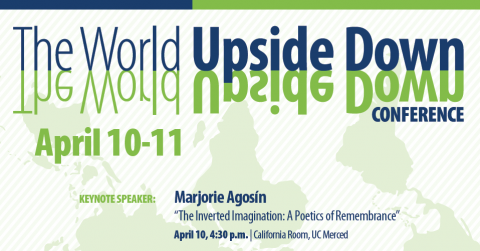
Register online to attend the conference.
This conference is FREE and OPEN to the public.
See the full conference program here.
For centuries, the metaphor of “the world upside down” has been deployed across cultures to describe the inversion, overturning or, simply, the disruption of social, political, and indeed psychological order. In the political realm, “the world upside down” signifies the transformative power of revolution. As it bears upon our own psyches, it refers to sudden and dramatic shifts in the way we perceive and inhabit the world. In an intellectual frame, “the world upside down” gestures toward the power of dialectical thinking: the analytic urgency of recognizing the upside in the downside—of “hold[ing] fast,” as Hegel put it, “the positive in the negative.”
“The world upside down” is something we aspire to—the foundation of another reality. “The world upside down” is also something we fear—the undoing of our cognitive certainty or socio-economic security. It asks us to question the putative essentialisms—including those of race, gender, and sexuality—that guide our sense of self and govern the social orders within which we live. It compels us to imagine alternative ways of being in the world, of relating to one another and ourselves.
We are interested in sub-themes that explore the notion of “the world upside down”—the multifarious historical and contemporary meanings of the concept, as it expresses itself in and through different social practices or cultural genres: rituals of inversion; the festive play of carnival; satire and other comedic forms; violence and its aftermaths; revolution; quotidian forms of resistance; shifts in the way human difference—race, gender, sexuality, class, age—is thought about and acted upon; the inversion of geographic imaginaries such as core–periphery and North–South; artistic avant-gardes; critical theory; bodily inversions; migration and diaspora.
If you have any questions concerning the conference, please contact us at humanities@ucmerced.edu.



